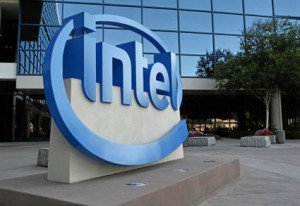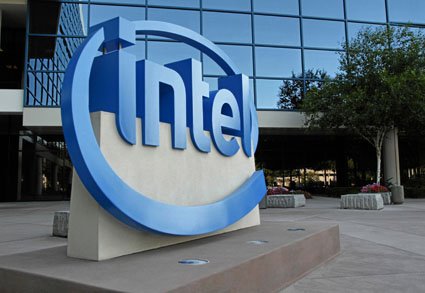The following post is written by Roger Conrad.

At its core, the stock market is still pushed and pulled by the same emotional forces as it was decades past, when individuals dominated trading. Indeed, today’s market is arguably more susceptible than ever to the ebb and flow of passions, thanks to the ability to move trillions of dollars at the touch of a button.
Consequently, the principles of contrary investing—gauging the madness of crowds to identify value as well as overvalue—are particularly relevant today. In light of the market’s current volatility, you ignore these proven truisms at your peril.
Over the near term, stock prices tend to reflect popularity, perception and other ephemera. When we buy, we look for stocks that possess solid long-term prospects, but trade at prices beaten down by investor fears.
The flip side of fear—irrational euphoria—can be just as strong an emotion, pushing favorite stocks to ridiculous heights. When stocks soar too high, we sell or at least take partial profits.
Of course, sometimes a stock falls or rises for valid reasons. That’s why when you bet against the crowd, it’s critical to do so from firm ground, with a broadly diversified portfolio of companies that feature strong balance sheets and reliable revenue.
Below, I focus on one beleaguered but sound household name that is now an excellent contrary bet: Intel Corp (NSDQ: INTC).
In January, Intel reported fourth-quarter fiscal 2012 earnings that disappointed investors, further punishing a stock that had been under pressure for most of 2012 (see Intel graph).
The chipmaker’s fourth-quarter earnings reached $2.5 billion, or $0.48 in EPS, compared with $3.4 billion, or $0.64 in EPS in the same year-ago quarter.
Fourth-quarter revenue dipped 3 percent to $13.48 billion from $13.89 billion a year ago, because of weak sales in recession-plagued Europe and the continuing shift from PCs toward mobile devices.
Analysts had expected the company to report EPS of $0.45, on $13.53 billion in revenue. But in our view, Intel is another tech stalwart suffering from inflated expectations.
Intel is the largest semiconductor maker in the world. Considering the recent slowdown in emerging markets and Europe’s persistent crises, it shouldn’t have been a surprise that consumers have been stingy in buying PCs, which constitute Intel’s bread and butter.
However, as growth accelerates in regions such as Asia and Europe gets its act together, expect a pickup in technology spending across the board.
Investors have lost sight of Intel’s intrinsic strengths, which will come to the fore as the global economy picks up steam.
Intel’s PC business remains its largest operating unit, generating two-thirds of sales in 2012. With brand name trust and the most advanced chips in the world, Intel will hang onto its dominance of the PC microprocessor market over the long term.
The company’s dominance is virtually assured by a fulsome research and development (R&D) budget of roughly $9 billion, the largest among companies spending $1 billion or more on R&D.
Meanwhile, the company generated $11 billion in free cash flow in 2012, a gigantic pool of money for future dividend boosts and stock buybacks.
One factor hurting Intel has been its tardiness in entering the booming smartphone market, but the company is rectifying this mistake with its introduction of a new chip specifically geared for smartphones.
Readers what’s your take? Bullish or bearish on Intel?
Roger Conrad is the Chief Investment Strategist of Investing Daily and North America’s leading authority on utility stocks and income investing.


6 Comments
Nice analysis. I own a bit of Intel at the moment and am thinking about adding to my position. They are a global player and have established a pretty solid brand like IBM. Personally I like to have a bit of QCOM as well as wireless carriers to get some smartphone technology exposure. I think regardless of other markets, just the global servers and data storage demand alone for the future will keep chip manufacturers very busy and profitable over the next few decades 😀
Liquid, thanx for dropping by! 😉
My concern with Intel has always been that the majority of its earnings (I believe its around 90% – correct me if I am wrong) are from the PC market. Though you are absolutely correct, servers and that demand will always exist. Their profits however, slumped a whopping 15% last year!
Companies like HP, Dell, etc. have seen their margins from PC sales declining. The mobile market has decimated sales for Intel, with the ARM processorl. Samsung and Apple get their chips made elsewhere.
My concern is whether Intel is a value-trap over a value-play. But then, that is the best time to buy I suppose. 🙂
Cheers
Nice write up. I may consider Intel at a bigger Margin of Safety. The big concern is how late are they to the smartphone and tablet chipset party. In my view the product they have for those markets is still a few generations behind the likes of Qualcom and Nvidia, and the Windows Mobile devices have failed to get any meaningful traction. At some point however, valuation becomes difficult to ignore. For me, that point hasn’t yet arrived.
Integrator, yah this is the problem with Intel. Great fundamentals, but declining earnings and market share. I argued your point specifically back in September 2011 in a writeup for DSO:
http://www.dividendninja.com/is-intel-a-good-buy/
And Dividend Growth Investor had an excellent writeup on Intel recently as well:
http://www.dividendgrowthinvestor.com/2012/12/is-intel-corporation-ultimate-value.html
Check out the articles, and let me know what you think.
Cheers
The Dividend Ninja